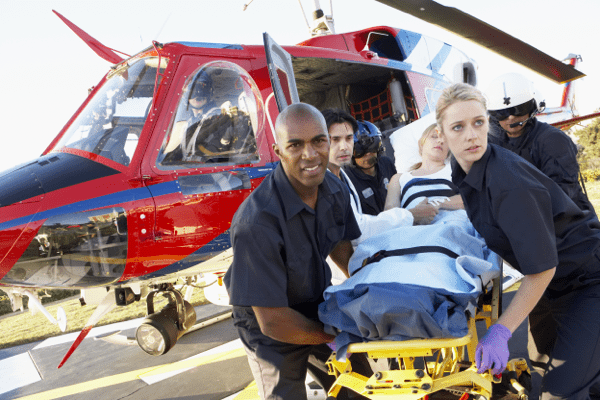
Home » Nursing Careers » Flight Nurse
Flight Nurse
- Updated August 5, 2023
- by EveryNurse Staff
Table of Contents

Are you a registered nurse with a passion for adventure and a desire to make a difference in critical care situations? If so, a career as a flight nurse might be the perfect fit for you. Flight nurses play a vital role in providing medical care during air transportation of critically ill or injured patients. In this comprehensive guide, we will explore the requirements, duties, and salary of a flight nurse, as well as the steps you can take to embark on this exciting career path.
What Is a Flight Nurse?
Duties & Responsibilities of a Flight Nurse
Patient Care and Monitoring
Communication and Collaboration
Equipment and Supply Management
How to Become a Flight Nurse
Educational Requirements
To become a flight nurse, you will need to meet certain educational requirements. Most employers prefer flight nurses to have a Bachelor of Science in Nursing (BSN) degree, although some may accept an Associate Degree in Nursing (ADN). It is important to note that having a BSN can provide you with a competitive edge in the job market and open up more career advancement opportunities.
Licensure and Certification
After completing your nursing education, you must pass the National Council Licensure Examination for Registered Nurses (NCLEX-RN) to obtain your registered nurse (RN) license. This license is required to practice nursing in the United States. Although certification is not mandatory for flight nurses, obtaining certifications such as the Certified Flight Registered Nurse (CFRN) credential can enhance your resume and demonstrate your expertise in flight nursing.
Gaining Experience
Prior experience in critical care settings is crucial for aspiring flight nurses. Most employers require a minimum of three to five years of combined experience in the intensive care unit (ICU) or emergency room (ER). This experience allows you to develop the necessary skills and knowledge to handle high-stress situations and provide quality care to critically ill or injured patients.
Additional Training and Skills
Related RN Careers
Flight Nurse Salary and Job Outlook
Flight nurses are highly skilled professionals who play a crucial role in critical care transport. According to the U.S. Bureau of Labor Statistics, the median annual salary for registered nurses, including flight nurses, is $89,010. However, it is important to note that flight nurse salaries may vary depending on factors such as experience, location, and employer.
Job Outlook for Flight Nurses
Flight Nurse Jobs and Career Opportunities
Employment Settings
Advancement Opportunities
Additional Resources for Flight Nurses
- So You Want to Be a Flight Nurse?
- Story of a Flight Nurse
- The Association of Air Medical Services (AAMS)
- Aeromedical Society of Australasia
- The Air Medical Physician Association (AMPA)
- Air & Surface Transport Nurses Association (ASTNA)
- National Association of Air Medical Communication Specialists (NAACS)












